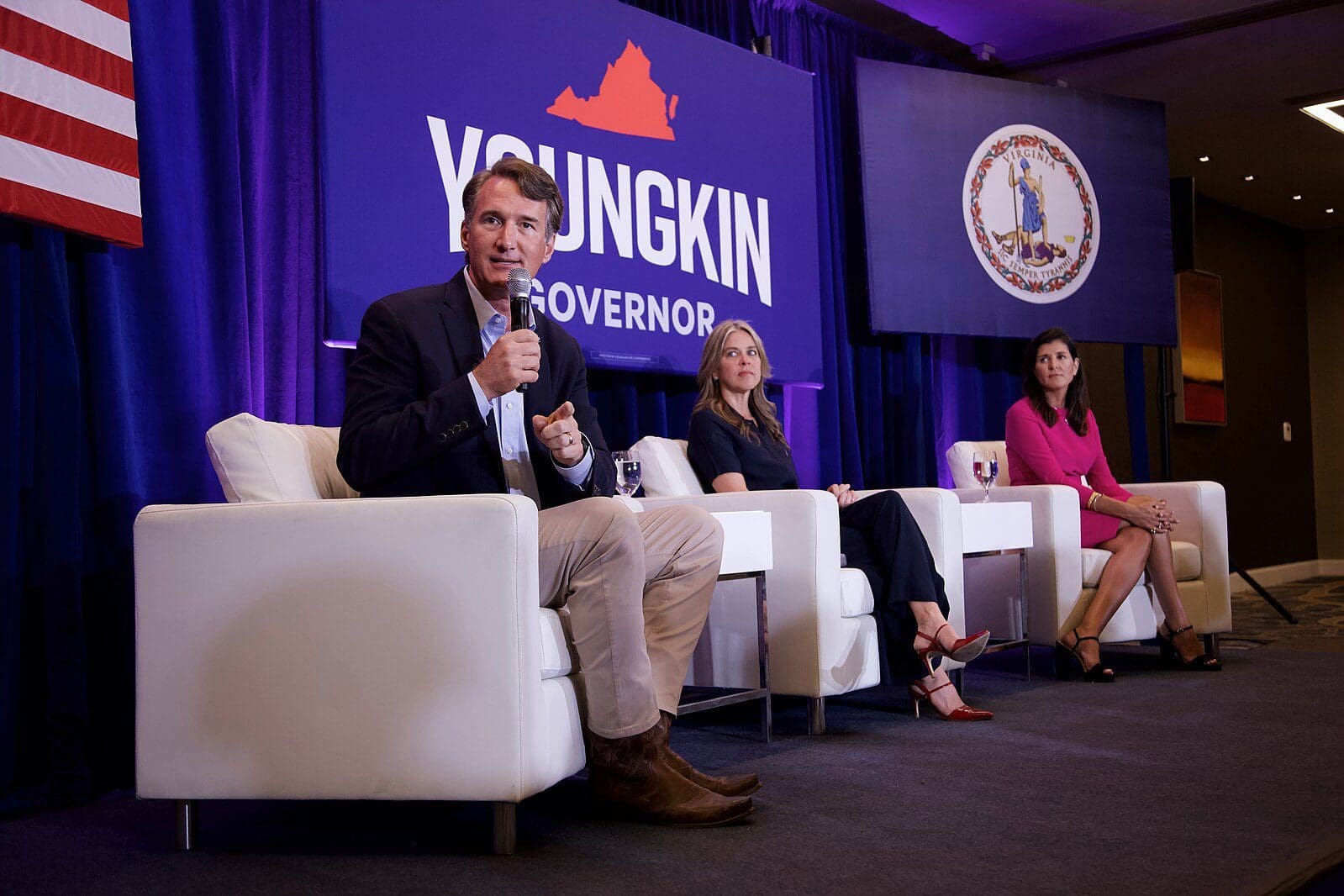
Union Monopolists on the Defensive in Virginia
Committee Survey Program Aims to Ensure Voters Have Clear Choices
In 2020, Big Labor Democrat politicians repealed Virginia’s 27-year-old statutory ban on government-sector monopoly bargaining, allowing union bosses to seize additional power over taxpayers and reign supreme over K-12 teachers and other civil servants.
National Right to Work Committee leaders and members and other citizens who opposed this special-interest legislation predicted it would render public services more expensive and less effective once it took effect in May 2021.
Opponents’ predictions are already being borne out.
For example, this April, the stridently pro-union monopoly 4-3 majority on the scandal-ridden Loudoun County School Board (LCSB) voted to add $3.3 million in funding to its 2023-24 budget to finance a scheme to foist monopolistic unionism on all K-12 educators in the system.
A number of Loudoun County residents are voicing strong opposition to the unionization provision, which must be approved by the county’s board of supervisors before it can take effect.
As Chris Braunlich, president of Virginia’s Thomas Jefferson Institute and a former school board member in a neighboring county, has explained, even as they raise costs for taxpayers, K-12 union contracts routinely limit school officials’ ability to reward good teaching and remove ineffective teachers.
No wonder scholarly analyses that properly control for regional variations in student demographics, such as a landmark 2018 Cato Institute study, find that more extensive monopoly privileges and greater political clout for teacher union bosses result in worse educational outcomes.
Right to Work Successfully Pushed Back in 2021, But Senate Seats Weren’t in Play
After repealing the Old Dominion’s ban on monopoly bargaining, which had been adopted less than three decades earlier with bipartisan support and signed into law by Democrat Gov. Doug Wilder, Big Labor intended to pave the way for even more radical legislation in Virginia’s 2021 elections.
Union politicos made more than $12 million in reported contributions alone to their favored candidates. And this was supplemented by millions and millions of dollars in unreported spending on union phone banks, get-out-the-vote drives, campaign staff, and much more.
But it all came to naught, thanks in significant part to National Right to Work’s investment that year in its voter education and mobilization programs.
Over the course of Virginia’s 2021 elections, the Committee sent over 750,000 mail communications across the Commonwealth to educate voters on where candidates stood with respect to freedom and coercion in the workplace.
When the dust had settled, Virginians flabbergasted Big Labor and its allies by electing a gubernatorial candidate, Republican Glenn Youngkin, who had pledged 100% support for Right to Work and 100% opposition to public-sector union monopoly bargaining.
Virginians also elected a new House of Delegates that went on, just over three months after the November 2021 elections, to vote to restore the 1993 prohibition on so-called union “exclusivity” in local government agencies.
However, since state senators in Virginia are elected to four-year terms, and no Senate seats were up for grabs in 2021, the Senate has remained up until now under Big Labor control.
With all 40 state Senate seats as well as all 100 state House seats potentially up for grabs this year, freedom-loving citizens finally have an opportunity to set the stage for revoking the special privileges wrongly granted to the Commonwealth’s government union bosses.
Survey Program Presses Candidates to Stand up For Taxpayers and Parents
Right to Work Committee Vice President John Kalb explained how the Committee is helping Virginians fight back against Big Labor:
“As the Republican and Democrat Parties select their general-election candidates in primaries and conventions early this summer, Right to Work is rolling out its Survey 2023 program.
“As part of this program, the Committee has already begun urging candidates of all stripes to make a commitment, regardless of their record up to now, to support Right to Work and oppose monopolistic unionism consistently in the future.
“And the Committee will soon begin mobilizing members to flood Virginia candidates with letters, postcards, phone calls, emails, and text messages in support of Right to Work.
“By the time November comes around, the Committee’s goal is to ensure there is at least one staunchly pro-Right to Work candidate in every Virginia Senate and House race. When voters have at least one good choice on the ballot, Right to Work’s success rate is extraordinarily high.”
This article was originally published in the National Right to Work Committee’s monthly newsletter. Go here to access previous newsletter posts.
To support our cause and help end forced unionism, go here.
